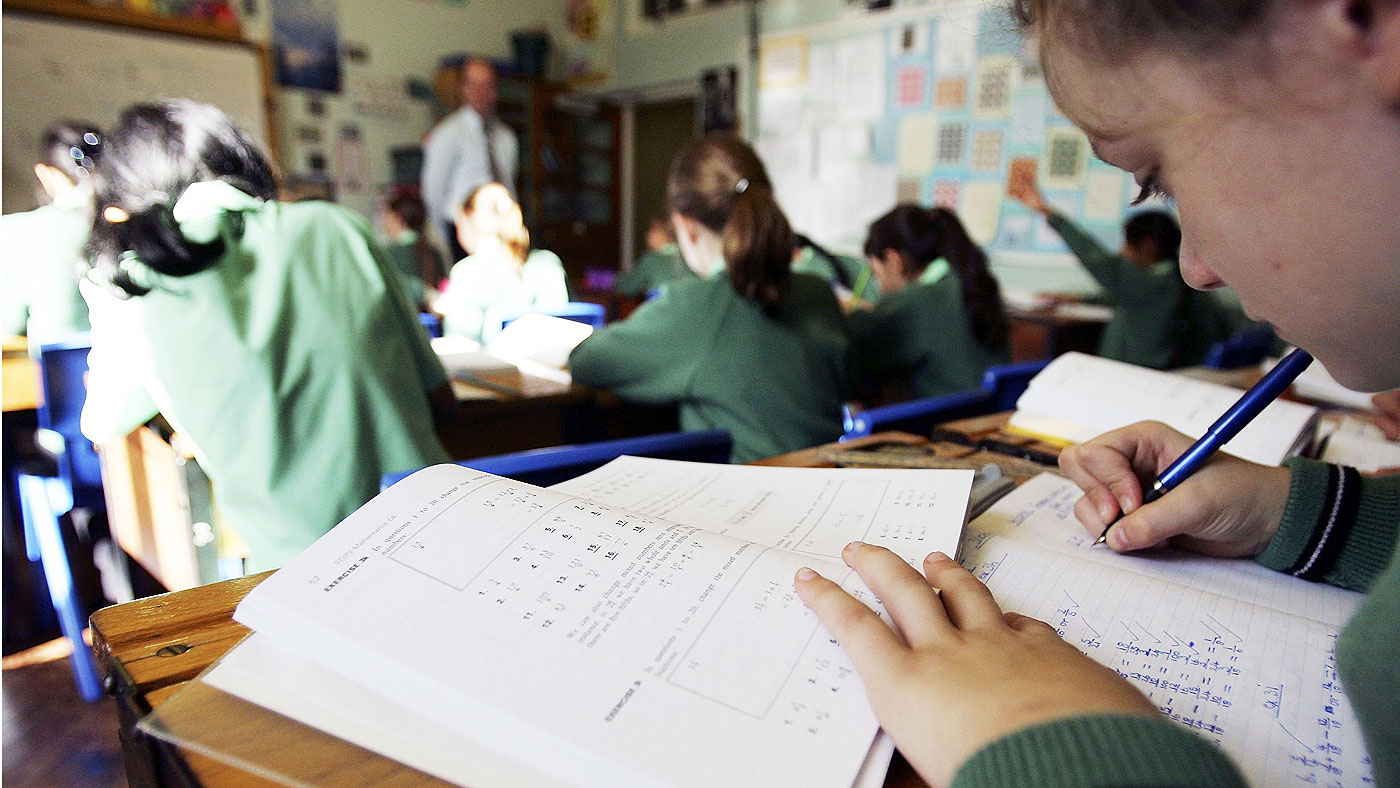Election manifestos 2017: The party policies on education
Think-tank warns that Tory government plans will mean further cuts to strained budgets

A free daily email with the biggest news stories of the day – and the best features from TheWeek.com
You are now subscribed
Your newsletter sign-up was successful
England's schools will suffer years of funding cuts if the Tories win next month's general election, an economic think-tank has warned.
Luke Sibieta, of the Institute for Fiscal Studies, told The Guardian the Conservatives' proposals "would lead to a near three per cent real-terms fall in spending per pupil over the parliament, taking it back to its 2010 level".
A report from the public accounts committee in March warned that England's schools were under the most intense financial pressure since the mid-1990s, potentially risking the quality of education they could provide.
The Week
Escape your echo chamber. Get the facts behind the news, plus analysis from multiple perspectives.

Sign up for The Week's Free Newsletters
From our morning news briefing to a weekly Good News Newsletter, get the best of The Week delivered directly to your inbox.
From our morning news briefing to a weekly Good News Newsletter, get the best of The Week delivered directly to your inbox.
So where do the main parties stand on school funding?
Theresa May and the Conservatives
While the Tory manifesto is comparatively short on numbers, preferring instead to outline wider "visions", it does also include a few concrete figures, including a pledge to add £4bn to the education budget.
However, Kevin Courtney, general secretary of the National Union of Teachers (NUT), says the banner pledge is "inadequate" and "misleading" because it actually promises "only £1bn per year" while schools need £2.2bn more per annum to "cover the impact of inflation and cost increases imposed by the government".
A free daily email with the biggest news stories of the day – and the best features from TheWeek.com
In terms of the overall budget, the Department of Education's claim that the Conservatives have increased school spending to all-time record levels is technically true, says the i newspaper, but per pupil expenditure has stagnated for the last five years, meaning there has been a real-term reduction when inflation is taken into account.
The manifesto also defends the controversial "fair funding formula" of assigning school budgets, which critics say will leave schools worse off, as well as the decision to scrap free school lunches for pupils in reception and years one and two in favour of free breakfasts.
Jeremy Corbyn and Labour
Labour's manifesto would give England's schools an extra £6bn a year. There will also be a boost in funding for Sure Start centres, which were introduced under Tony Blair to provide free childcare and pre-school services for disadvantaged families but have since been subject to budget cuts and closures.
The party also pledges to oppose grammar schools, expand free school meals provision to cover all primary-age pupils and reintroduce the Education Maintenance Allowance for lower-income students in further education.
The NUT praised the commitment to Sure Start, early years education and establishing a centralised national education service as "a sign of policy which is grounded in evidence and experience".
However, the Education Policy Institute, chaired by former Liberal Democrat education minister David Laws, was sceptical about Labour's plans for higher education, which include abolishing tuition fees and restoring maintenance grants, saying it would cost up to £13.5bn.
Tim Farron and the Liberal Democrats
Like Labour, the Lib Dem manifesto promises to reverse government real-terms cuts and pledges £7bn of extra funding to ensure no schools lose out.
The party also says it would halt plans to reintroduce grammar schools, ensure that arts provision is protected and triple the Early Years pupil premium to £1000 a year, which they say will guarantee a fair start for all children regardless of their circumstances - a "very welcome" promise, said NUT general secretary Kevin Courtney.
The NUT also applauded the manifesto for "offering a wider vision in which teachers can meet the needs of the child not the demands of a test".
-
 Why are election experts taking Trump’s midterm threats seriously?
Why are election experts taking Trump’s midterm threats seriously?IN THE SPOTLIGHT As the president muses about polling place deployments and a centralized electoral system aimed at one-party control, lawmakers are taking this administration at its word
-
 ‘Restaurateurs have become millionaires’
‘Restaurateurs have become millionaires’Instant Opinion Opinion, comment and editorials of the day
-
 Earth is rapidly approaching a ‘hothouse’ trajectory of warming
Earth is rapidly approaching a ‘hothouse’ trajectory of warmingThe explainer It may become impossible to fix
-
 The pros and cons of banning cellphones in classrooms
The pros and cons of banning cellphones in classroomsPros and cons The devices could be major distractions
-
 School phone bans: Why they're spreading
School phone bans: Why they're spreadingFeature 17 states are imposing all-day phone bans in schools
-
 Schools: The return of a dreaded fitness test
Schools: The return of a dreaded fitness testFeature Donald Trump is bringing the Presidential Fitness Test back to classrooms nationwide
-
 Send reforms: government's battle over special educational needs
Send reforms: government's battle over special educational needsThe Explainer Current system in 'crisis' but parents fear overhaul will leave many young people behind
-
 Education: Can public schools be religious?
Education: Can public schools be religious?Feature A Supreme Court seems ready to rule in favor of religious charter schools in Oklahoma, which could reshape public education
-
 America's academic brain drain has begun
America's academic brain drain has begunIN THE SPOTLIGHT As the Trump administration targets universities and teachers, educators are eying greener academic pastures elsewhere — and other nations are starting to take notice
-
 Schools' Send crisis: how can it be fixed?
Schools' Send crisis: how can it be fixed?Today's Big Question Government urged to reform support for children with special educational needs and disabilities and save councils from bankruptcy
-
 Unschooling: the radical education trend raising eyebrows
Unschooling: the radical education trend raising eyebrowsUnder the radar Some parents are letting their children lead their education